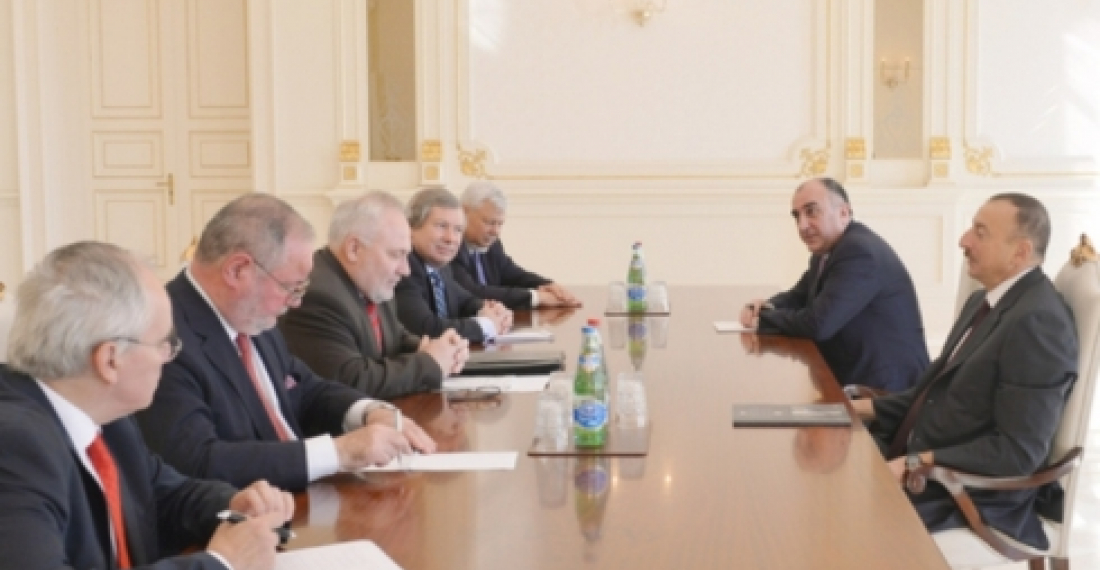Президент Азербайджана Ильхам Алиев принял у себя сопредседателей Минской группы ОБСЕ Игоря Попова (Россия), Джеймса Уорлика (США), Жак Фора (Франция). На встрече также присутствовали Пьер Андрие, новый сопредседатель от Франции, который заменит посла Фора в ближайшие дни, а также специальный представитель швейцарского председателя ОБСЕ, Анджей Каспршик.
На сайте Президента Азербайджана говорится, что стороны "обменялись мнениями о нынешнем состоянии и перспективах переговоров по урегулированию армяно-азербайджанского конфликта вокруг Нагорного Карабаха".
Ранее на этой неделе сопредседатели Минской группы побывали в столице Швейцарии Берне, где приняли участие в неофициальном обмене мнениями с ведущими специалистами по Южному Кавказу, которое провело правительство Швейцарии. На встрече закрытой для прессы присутствовали высокопоставленные швейцарские дипломаты. Однако источник сообщил commonspace.eu, что на встрече в Берне сопредседателей оспорили по нескольким аспектам их подхода к конфликту и призвали принять более решительные меры в их усилиях по выходу из нынешнего тупика для того, чтобы помочь сторонам перейти к следующему шагу переговоров.
Источник: commonspace.eu
фото: сопредседатель Минской группы ОБСЕ на встрече с президентом Азербайджана Ильхамом Алиевым, суббота, 31 Мая 2014 (фото любезно предоставлено пресс-службой президента Азербайджана).






